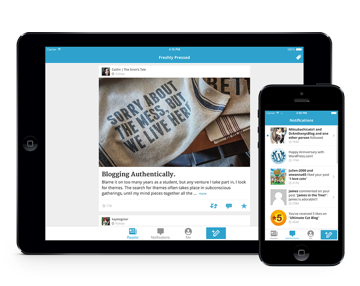There are so many trends in Marketing right now. It’s hard to know which one you should invest your effort and your time into. Should you go with content marketing, influencer marketing or more traditional marketing?
The answer? Whichever you like, as long as you make sure that you do so in VR. VR is, without a doubt, the future. Sure, it’s been a little slow in getting started, but that doesn’t change that it is coming.
The advantages are simply too many for it not to. Here are the signs that this isn’t just me saying so but that it’s true in general.
Reason one: Virtual reality is growing
Sure, it started at a low base and the first role out was disappointing, but VR is still growing. And that growth is going to accelerate as headsets and technology become cheaper, lighter and better. Already there are stories in places like the Washington Post titled ‘Oculus Go is the first VR gadget you might actually buy’.
That’s a marked switch from the disappointment of a few years ago. And as the technology catches up with the initial hype stories are going to be more common. Until one of these days soon VR will be as integrated into our society as smart phones are now.
Reason two: It means users can actually try a product
The big problem with marketing is that it’s very hard to bring the person viewing it into the actual effort. An ad exists separate from the person viewing it. The same is true of a story, influencer marketing and any other form of marketing out there.
Also, Read: 8+ Apple’s ARKit Applications that Will Amaze You About the Power of AR
This creates a barrier to purchase that until now could only be overcome by letting people imagine what it would be like to own a product that they did not yet own. And that can be quite difficult – particularly as people get more jaded and savvy to the way that marketing works.
VR can bridge that gap. No longer is it necessary for people to imagine a dress, or car or a couch. Instead, it can simply be imported into their world as is and they can see what it would be like to own it.
And that’s powerful – not least because once we feel that we own something, we value it more (something known as the endowment effect). And so, we’re far more likely to pay whatever the is asked.
Reason three: VR means more dimensions that people are going to move into
One of the biggest costs businesses have is their real estate. VR offers a way to reduce such costs by creating virtual environments where people can meet, work, write, talk and try out their project. That means that as soon as it becomes feasible from a technological and price-related price point, companies are going to start to move their work online.
And when employees spend a lot of time in a virtual environment, then that’s obviously where marketers are going to have to approach them.
Approaching them there alone won’t be enough, of course. It will also be important that marketers use the features of the technology to sell the product. Otherwise, it will be like presenting a black and white picture on a color TV.
Reason four: New ways of doing business are on their way
For a long time after the invention of the PC everybody thought it was very cool but nobody quite knew what to do with it. It was a cool device, but it didn’t have much application. That all changed when the spreadsheet was invented. With it, suddenly the PC became incredibly useful.
This is often the way with new technologies. It takes a while for people to figure out how to use them correctly and the tools that make it truly excellent have been developed.
That’s going to be true of VR as well. The ways that we can market on VR haven’t yet been fully developed. Once they have, however, then a revolution is going to take place that’s going to make any person or business that doesn’t yet have the technology miles behind the competition.
Reason five: Science advances from funeral to funeral
A great deal of the resistance VR and similar technologies are currently experiencing is that there is that most of the world did not grow up with it. They did not need it before and therefore many of them can’t imagine why they would need it now.
But with every passing day, that will change. New people will be born who never knew a world without VR while people who never tried the technology will leave the workforce or depart our world all together.
Add to that that even people who grew up without the technology will come to adopt it and the technology will go from a fringe occurrence to something that is as obviously essential to a normal life that we’ll look strange at people who say they don’t use it.
So, start preparing the way
Whether VR is only a year away from being taken up on a large scale or whether it will take five, that it will happen isn’t in any doubt. The opportunities of being able to transition work and play into other worlds where they take up a fraction of the space is incredibly – even if we might not have figured out why yet.
To be aware of what’s happening and where the technology is going is therefore essential for any marketing team. For when that tipping point is finally reached and people embrace the technology for real, those teams who are ready and know what they’re dealing with will be in the right position to exploit that knowledge and build up an impressive lead.
As for everybody else? They’ll desperately be left playing catchup. Now, which team would you rather be on?
Alaine Gordon is a young and talented content manager at Essays.Solutions. She has been writing professionally since 2010 about almost everything, from psychology and to finance. Alaine Gordon graduated from the University of Colorado with B.A. in Journalism, 2011. She is an open-minded, creative person who loves to make people smile. Her credo is ‘Life is a fun enterprise’. In her free time she loves traveling, reading science fiction and knitting. Her huge dream is to visit every single country in the world.






Comment here